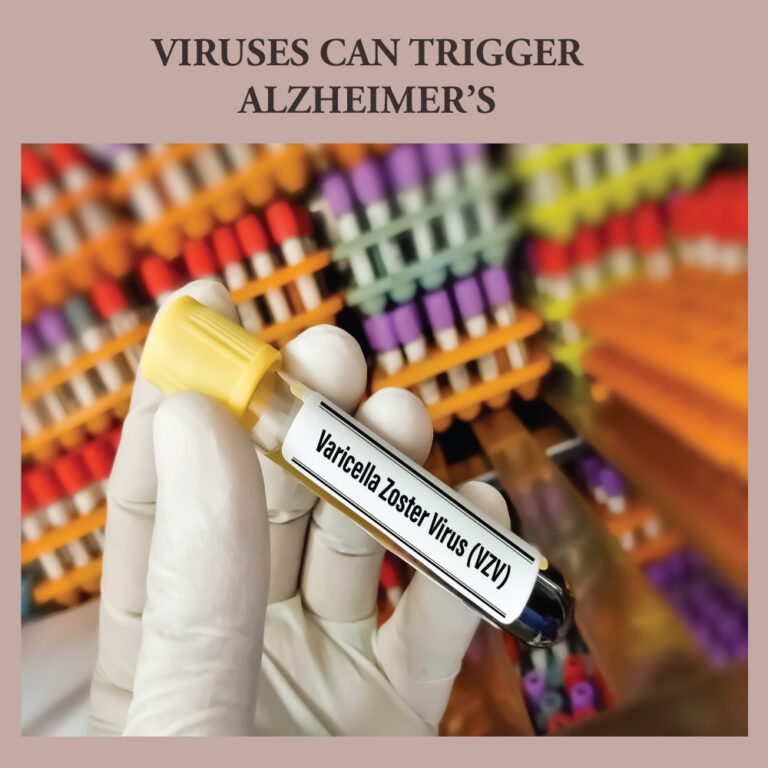
A vaccine used to combat a common virus that causes chickenpox and shingles also may “considerably” diminish the risk of dementia, researchers at Tufts University have suggested.
The virus itself, known as varicella zoster virus – or VZV, can activate the herpes simplex virus, which in turn can impair neural signaling and increase plaque deposits, both of which can precipitate the onset of Alzheimer’s disease.
Another factor that can reactivate the VZV and HSV-1 viruses, the researchers found, is Covid infection, particularly among the elderly who can suffer long-term neurological effects of the coronavirus.
Ordinarily, according to the Tufts researchers, who were joined in their work by scientists from the University of Oxford, HSV-1, a variant of herpes simplex virus, remains dormant within the brain’s nerve cells. More than 3 billion people worldwide have the usually asymptomatic virus, which can cause oral herpes. But when HSV-1 becomes active, it provokes the accumulation of tau and amyloid beta proteins, which, along with the loss of neuronal functions, are symptoms of Alzheimer’s.
“We know there is a correlation between HSV-1 and Alzheimer’s disease, and some suggested involvement of VZV, but what we didn’t know is the sequence of events that the viruses create to set the disease in motion,” said David Kaplan, chair of the Department of Biomedical Engineering at Tufts. “We think we now have evidence of those events.”
The Center for Disease Control reports that one of every two Americans carries the HSV-1 virus, but with mild or no symptoms, before it becomes dormant in the brain. But when individuals age, VZV often is reactivated and can cause shingles. The link between HSV-1 and Alzheimer’s emerges only when the virus is reactivated and results in herpes-type sores and other inflammatory conditions.
The researchers created a three-dimensional simulated brain to better grasp the relationship between Alzheimers and the virus. Only if the neurons growing in the brain already had HSV-1 symptoms and then were exposed to VZV did they develop the proteins that are harbingers of Alzheimer’s and slow the functioning of the neurons.
“It’s a one-two punch of two viruses that are very common and usually harmless, but the lab studies suggest that if a new exposure to VZV wakes up dormant HSV-1, they could cause trouble,” explained Dana Cairns, a Tufts researcher. Cairns said despite the connection between the virus activation and Alzheimer’s, other infections and episodes in the brain also could provoke HSV-1 and lead to Alzheimer’s.
The VZV vaccine for shingles and chickenpox, according to the researchers, can reduce the risk of dementia as well as halt the reactivation of and neural damage associated with the disease. While they observed that the anti-viral medication reduced the herpes symptoms aligned with Alzheimer’s in the simulated brain, however, they cautioned that it was too soon to say whether the vaccine would work in human patients.












